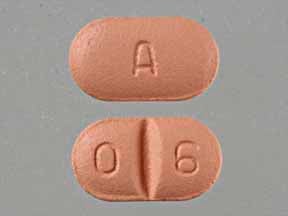
Citalopram Coupons & Savings Card – Discount Prices from $16.68
Generic for: Celexa
My prescription
Edit
20MG, Citalopram (90 Tablets)
Select pharmacy

CVS
$28.19
COUPON PRICE
Albertsons
$16.68
COUPON PRICE
Walgreens
$20.72
COUPON PRICE
Walmart
$40.13
COUPON PRICECitalopram savings card
Show this card to your pharmacist
Albertsons
$16.68
BIN
ID
PCN
GRP
015995
LHKPX311060
GDC
DR33
Powered by
More prescriptions for depression
More prescriptions for depression
Price history for Celexa (brand) & Citalopram (generic)
90 Tablets, 20MG
Average retail price for Celexa
Average retail price for Citalopram
Average SaveHealth price for Citalopram
Our price history data is based on aggregated prescription data collected from participating pharmacies in America. Our prescription data updates daily to reflect the latest price changes. If you notice a missing data point, it means there wasn't sufficient data available to generate a monetary value for that date.
We analyzed Citalopram prices for (20MG, 90 Tablets) over the last 12 months. The average retail price was $91.88, while the average price using the SaveHealth discount card was $28.23. That's a savings of approximately 69.28% when using our Citalopram coupon.
Compared to the generic version, Celexa had an average price of $398.59 over the same time period. With the SaveHealth savings card, Citalopram is 92.92% cheaper on average than Celexa.
*Retail prices are based on pharmacy claims data, and may not be accurate when we don't have enough claims.
Citalopram dosage forms
Dosage Quantity Price from Per unit 10MG 1 Tablet $9.03 $9.03 10MG 5 Tablets $9.13 $1.83 10MG 30 Tablets $9.77 $0.33 10MG 60 Tablets $10.55 $0.18 10MG 90 Tablets $17.27 $0.19 10MG 100 Tablets $17.52 $0.17 10MG 360 Tablets $24.08 $0.07 10MG 500 Tablets $27.61 $0.06 10MG 1000 Tablets $40.22 $0.04 10MG 9990 Tablets $236.09 $0.02
| Dosage | Quantity | Price from | Per unit |
|---|---|---|---|
| 10MG | 1 Tablet | $9.03 | $9.03 |
| 10MG | 5 Tablets | $9.13 | $1.83 |
| 10MG | 30 Tablets | $9.77 | $0.33 |
| 10MG | 60 Tablets | $10.55 | $0.18 |
| 10MG | 90 Tablets | $17.27 | $0.19 |
| 10MG | 100 Tablets | $17.52 | $0.17 |
| 10MG | 360 Tablets | $24.08 | $0.07 |
| 10MG | 500 Tablets | $27.61 | $0.06 |
| 10MG | 1000 Tablets | $40.22 | $0.04 |
| 10MG | 9990 Tablets | $236.09 | $0.02 |
| 20MG | 90 Tablets | $17.60 | $0.20 |
| 20MG | 1 Tablet | $9.03 | $9.03 |
| 20MG | 14 Tablets | $9.42 | $0.67 |
| 20MG | 15 Tablets | $9.45 | $0.63 |
| 20MG | 30 Tablets | $9.91 | $0.33 |
| 20MG | 33 Tablets | $10.00 | $0.30 |
| 20MG | 45 Tablets | $10.36 | $0.23 |
| 20MG | 52 Tablets | $10.57 | $0.20 |
| 20MG | 60 Tablets | $10.81 | $0.18 |
| 20MG | 100 Tablets | $17.89 | $0.18 |
| 20MG | 120 Tablets | $18.47 | $0.15 |
| 20MG | 360 Tablets | $25.41 | $0.07 |
| 20MG | 500 Tablets | $29.46 | $0.06 |
| 20MG | 1000 Tablets | $43.92 | $0.04 |
| 20MG | 5600 Tablets | $143.90 | $0.03 |
| 40MG | 1 Tablet | $9.04 | $9.04 |
| 40MG | 15 Tablets | $9.63 | $0.64 |
| 40MG | 30 Tablets | $10.26 | $0.34 |
| 40MG | 33 Tablets | $10.39 | $0.32 |
| 40MG | 45 Tablets | $10.89 | $0.24 |
| 40MG | 60 Tablets | $11.52 | $0.19 |
| 40MG | 90 Tablets | $19.07 | $0.21 |
| 40MG | 100 Tablets | $19.53 | $0.20 |
| 40MG | 120 Tablets | $20.43 | $0.17 |
| 40MG | 135 Tablets | $21.11 | $0.16 |
| 40MG | 360 Tablets | $31.29 | $0.09 |
| 40MG | 500 Tablets | $37.63 | $0.07 |
| 40MG | 1000 Tablets | $55.30 | $0.06 |
| 40MG | 2800 Tablets | $107.50 | $0.04 |
